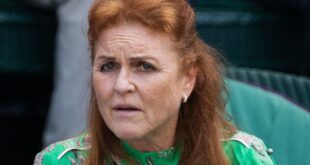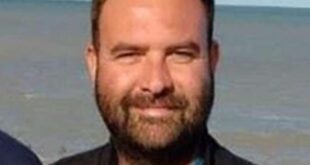History aside, the new chairman would join Ofcom at a pivotal moment for its future. In the coming months the regulator will become the enforcer of new laws to rein in Google and Facebook by holding them accountable for harmful online content. A failure to comply could lead to painful consequences. The likes of Facebook and Twitter could be blocked from operating in the UK, or stung with multi-billion pound fines of up to 10pc of their annual turnover.
It would mean Ofcom could impose a maximum fine of £7.5 billion to Facebook and £16 billion to Google if they fail to “remove and limit” illegal content. Dacre is no fan of the tech giants. In a 2018 speech he said the “ultimate solution – as with the oil barons in the last century – is to break them up”.
“Their monopolistic power is too great and that fundamental human characteristic – the need for privacy against the industrial-scale theft of our data – will reassert itself,” he said. Yet Associated Newspapers today finds itself opposing new powers for Ofcom, in partial alliance with Google and Facebook.
In a submission to the House of Lords Communications and Digital Committee, its parent company said the legislation was currently “incompatible with the freedom of expression enjoyed by the British press.” “We appreciate there are those who would argue that this is necessary for the good of society,” the publisher added. “But that is the argument used by the Chinese government.”
Industry lawyers say such lobbying may be seized on as a potential conflict of interest, since the new chairman will be required to “uphold a strong reputation as an impartial, independent and evidence-based regulator”.
Yet Dacre’s role at Associated Newspapers is viewed as mostly ceremonial. The company is now operated as part of DMG Media, the consumer publishing unit of DMGT, a listed company. DMG Media is chaired by its controlling shareholder Lord Rothermere, rather than Dacre. Companies House records show that although he holds the public title of chairman of Associated Newspapers Limited, Dacre resigned as a director of the corporate entity when he gave up day-to-day editing duties in 2018.
As the delayed appointment process for Ofcom enters the crucial phase, there remain hurdles for Dacre. Candidates are due to be sifted for suitability by an independent panel composed of Susannah Storey, a senior civil servant in the Department for Culture, and Paul Potts, a veteran newspaper executive who is a personal friend of John Whittingdale, the media minister.
An ally of Carrie Symonds, Boris Johnson’s fiancée, Whittingdale is an industry expert in Westminster terms and mostly viewed as a moderating force on policy matters. The creation of the panel has been closely watched by senior telecoms industry figures who fear Dacre’s lack of experience of the vast complexity of the rules and technical challenges under which they operate.
Multiple sources said one experienced figure approached to join the panel raised concerns that the process could be undermined by reports Dacre was the Prime Minister’s favourite, including by a Times journalist married to his official spokesman, Allegra Stratton.
The woman, who friends declined to name, was not appointed to the panel, which for previous appointments has had three rather than just two members. A Government source said: “At the end of the day, the panel is not there to choose the next chair of Ofcom.
The job of the panel is to assess all those who applied to determine which ones are appointable and which are not.
“Ideally you get three or four names coming out of that and then it is up to the Prime Minister and secretary of state as to which of those is chosen.” This weekend, industry sources said the Government has been on the hunt for more candidates to ensure a tough competition.
Final interviews are due to take place in late April.



